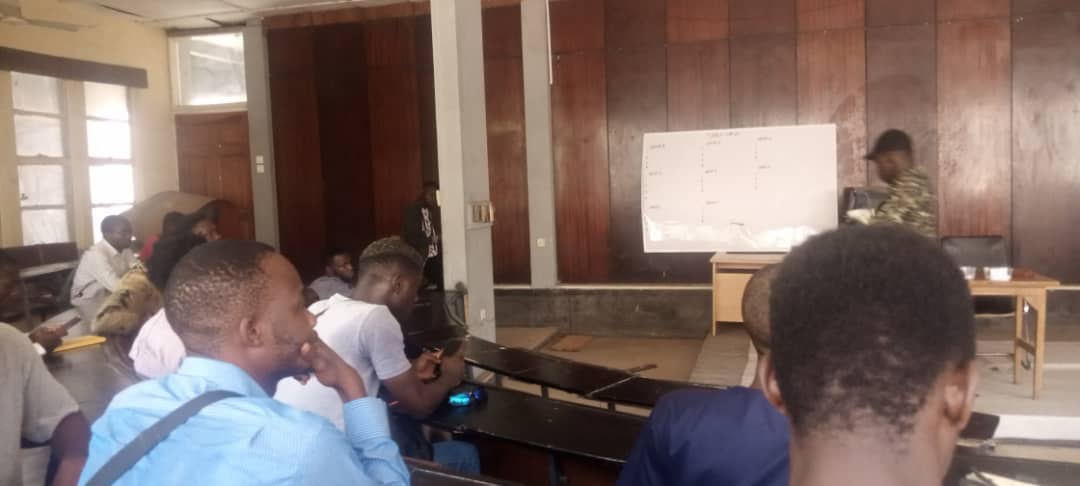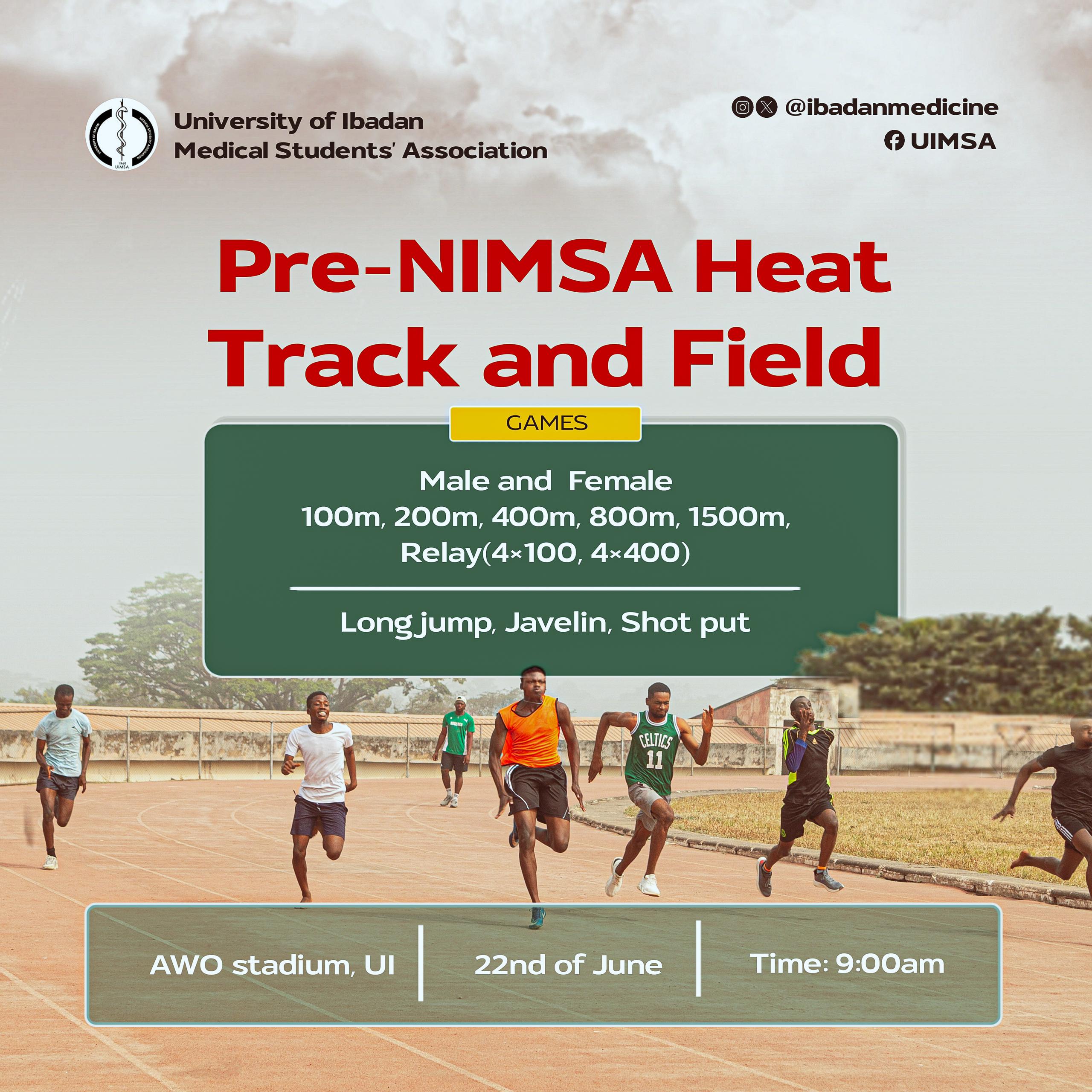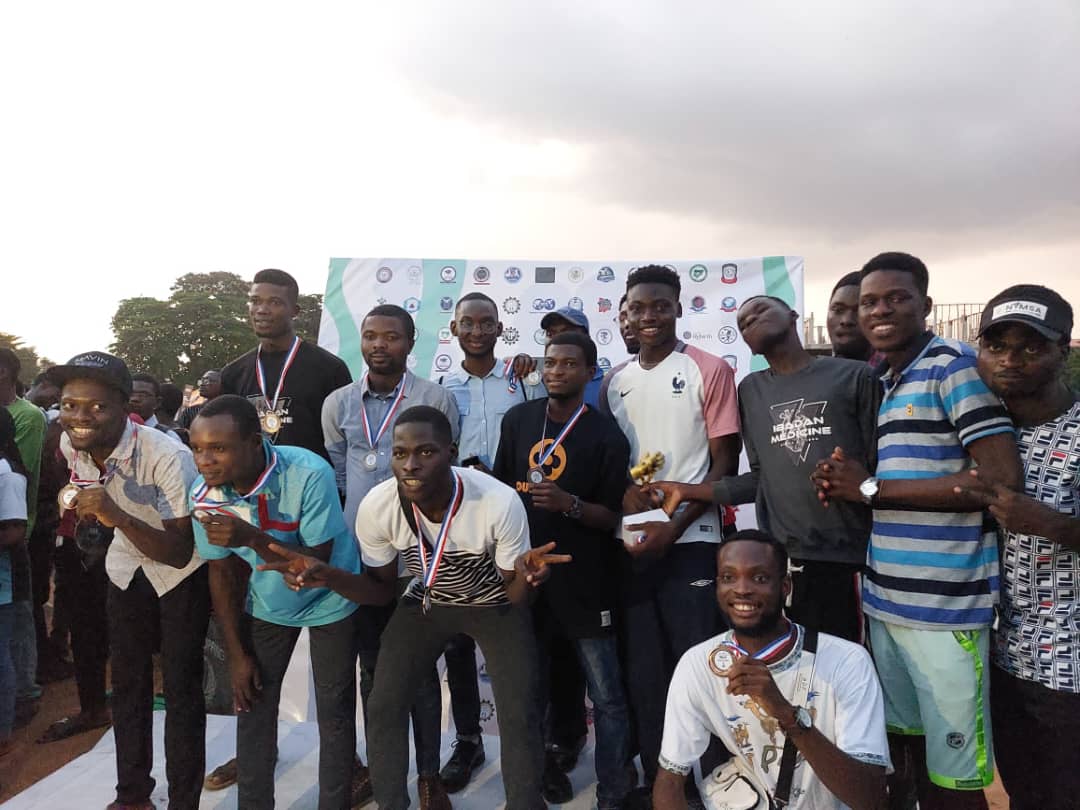Rethinking Themes and Sports Culture at End-of-Session Weeks

There is a lot to be said about the intentionality put into the coherence of themes and the events they are used for on self-acclaimed intellectual soil like the premier University. Ideally, in picking themes for days/week-long events, the lineup should reflect what these themes communicate. However, that’s not the case in the University of Ibadan, at least for the majority.
6 days ago, the Aweda Bolaji-led University of Ibadan Students’ Union held the Nostalgia-themed ‘Inter-House Sports’ day, featuring the Super Cup final and sprint races, to name a few. Nostalgia is a sentimental longing or a wistful affection for a period experienced in one’s past. Judging from posts on the Union’s social media accounts, this was to relive the childhood memories that shaped us, while moving up the ladder of adolescence, and transitioning into adulthood.
In as much as the coherence of themes and events can be debated, Nostalgia is a theme that sets some difference compared to what we’ve had in the last few years. Constant retrospection stemming from the will to keep the candle burning amidst the hardship-laced adulthood helps university students bask in how good the old days were. The innocence and blissful ignorance contribute to the beauty of these memories we make efforts – however small they are – to relive. However, in a community where students long to relive such memories, one would expect an overboard level of participation. Due to the ever-existing dynamism in students’ schedules on campus, we can excuse the heightened expectation of involvement. But let’s put that aside, the route with which this theme was explored for sports shows unity as an essence. How? For the sporting events, all residential halls were grouped into four houses: Yellow, Red, Blue, and Green. We had Awolowo, Kuti, and Tedder in the Yellow House; Queens, Azikiwe, and Mellanby in the Red House; Alexander Brown and Postgraduate halls in the Blue House; and Idia, Bello, and Independence in the Green House. This is a unique initiative in UI sports, especially in the light of recent happenings at Jaw War: Rise of Legends, where constituencies have had their fair share of brewing un-sportsmanlike exchanges and engagement. This housing of a group of halls fosters unity and collaboration whilst showing talents on track and the field. This cannot be overstated, although, the extent to which this unity was achieved can still be debated.
Away from the aims and essences, quality makes certain decisions and outcomes clearer to the blind. The quality of sports on that day, intended to spark a nostalgic feeling amongst students, is another point of conversation. In an informal chat with attendees, this writer gleaned an overall observable level of decency in quality, which is credible. However, much was left to be desired regarding the organisation of certain events, particularly towards the end of the sports day and the eventual failure to fulfil the list of events as publicised. For precedent’s sake, it is not a good look for future similar events. The level of participation on that day could have been a function of publicity seeing that several other events were running simultaneously elsewhere on campus. Aderonke could have been there to see her department lift the Super Cup trophy, and in the same vein, watch participants from her hall charge for Interhouse Sports medals. The same could be said for Azeez who primarily came to represent his house in the sprint races. From another lens, the level of participation could have also been a function of genuine interest, seeing the ecstasy with which supporters were screaming from the spectators’ stand.
Another interesting point of conversation is how this ties back to the sports culture in the university. One case in point is the march past that was held on that day. Blue House (ABH and PG) was not represented at all. That, and minimal participation from other halls in some of the events speaks to the probable participation level of some halls of residence in the Inter-Hall competitions scheduled for the semester’s end. This could be a sign of what to expect in the coming months and as such, should be a call to the respective Sports Directors/Ministers to put in the work required for optimal – if not maximal – participation. Time will be the judge and revealer of the differences between both situations. More importantly, seeing that the focus of competitions like this is on the not-so-popular sports in UI, which have their seasons, unlike football or volleyball played around the session, work needs to be done.
Again, it is not news that we have a lot of Health, Hall, Departmental, and Faculty Weeks in UI and these week-long events have a day dedicated to sports. If anything, this sort of creativity explored in the just concluded SU Week is a call to the necessary authorities on the monotonous pattern observed in these weeks. There needs to be a variation in the format of sports events to make them more fun and engaging, beyond medal and trophy hauls. This is not to discredit or disregard the theme that the events are tagged after. However, there is a dearth of creativity in how these Sports sections of the Weeks are approached. In departmental weeks where four to six classes participate, sports events can take a fun twist from inter-class to groups where students of different classes come as singular units. This grouping could be based on factors like Halls, cliques, and common interests like tech, entertainment, art etc. Beyond class representation, it could foster participation among the core non-athletes seeking to also be a part of Sporting activities. At the Faculty level, it would encourage inter-mixing among departments and improve camaraderie. This culture could ultimately unearth more talents in the university community for representation’s sake at events like the Nigerian University Games (NUGA), West African University Games (WAUG) etc.
To conclude, the importance of coherence of themes and events cannot be overstated. Themes should not just be chosen at random. For events that require a lot of funding and planning, naming should not follow a haphazard procedure. Activities in these weeks should also be tailored to reflect what these themes read to the general public. Suppose the first two recommendations are taken seriously, we won’t have celebration weeks packed with the same events in the same formats, effectively addressing apathy as well as creativity.
Peter Adeyemo




